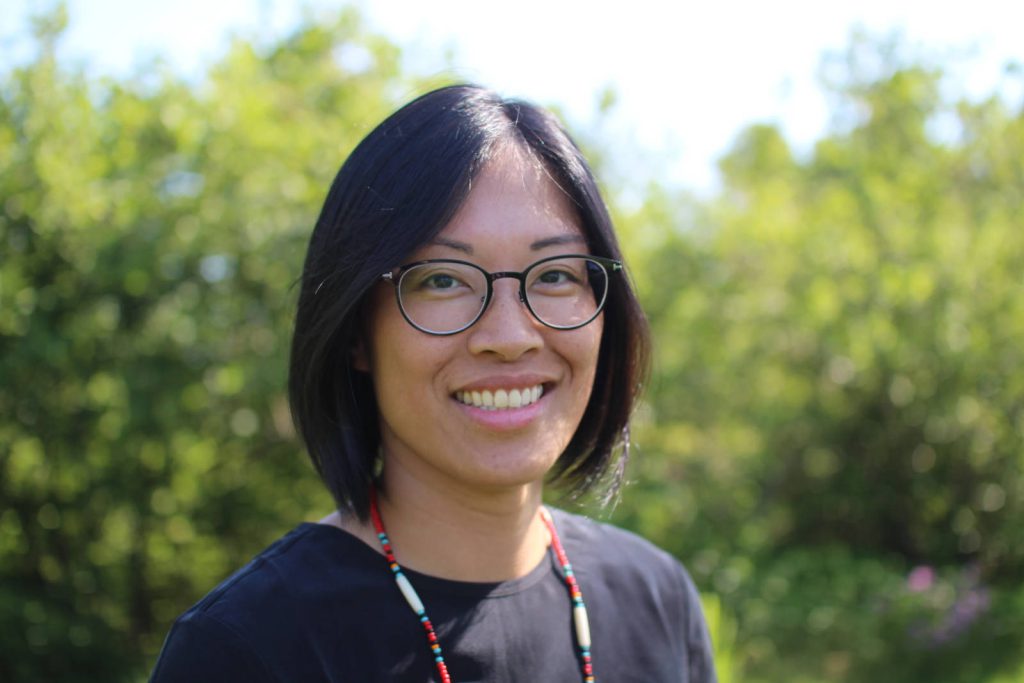The racial justice movements of 2020 had a profound impact on me. As unadulterated racism spilled out from seemingly everywhere, including within my social and personal circles, I saw the trauma complicity and internalized racism inflicted. There were uncomfortable conversations and loss of relationships. The line between anti-racist and “not anti-racist” began to form. Charlottetown held Black Lives Matter and Indigenous Lives Matter marches this year. Amongst the hate and vile, there was also growth and solidarity.

Then in the fall, the attacks on Mi’kmaq fishers and their treaty rights made news around the world. Unadulterated racism and colonialism appeared in the way the news was reported, in the reactions (and lack of) of elected officials, on social media, and in casual conversation. It cemented something I think I had known for some time – I went from seeing myself as an immigrant and racialized Canadian to a settler. Seeing myself in that way made it clear I had settler responsibilities and put in context the simmering discomfort and guilt that had been growing.
While I had a grasp of racism through my lived experience, my understanding of colonialism was severely limited. I knew there was a complex relationship between racism and colonialism but needed to learn more.
This fall, I came across the collection of essays Pathways of Reconciliation: Indigenous and Settler Approaches to Implementing the TRC’s Calls to Action, edited by Amiée Craft and Paulette Regan. The very first chapter, written by David B. MacDonald, points out the purposeful use of equality by settlers to limit true reconciliation. While equality is often discussed in conversations on racism, it misrepresents reconciliation.
MacDonald compares “hard rights” (i.e., “self-determination and land rights for Indigenous nations, with or without statehood”) against “soft rights” (i.e., “collective rights to language, culture, spiritual beliefs and practices, educational systems, and other forms of identity”). Efforts in reconciliation within Canada have so far been focused on soft rights, which allows the state to retain its power. The idea of equality is to make Indigenous peoples equal with settlers by closing gaps (e.g., economic opportunities, access to healthcare) without changing the structure of the settler state or requiring settlers to acknowledge and address their inherited colonial, exploitative relationships with Indigenous peoples. It seeks to make reconciliation more familiar, comfortable, and non-threatening. It avoids restoring the nation-to-nation and government-to-government dynamics that existed prior to colonization.
I learned about other traps in looking at decolonization as anything other than “repatriation of Indigenous land and life” from Eve Tuck and K. Wayne Yang in Decolonization is not a metaphor. One of them is using decolonization as a metaphor for other social justice work – for example, “decolonizing anti-racism”. It does nothing to relinquish stolen land or disrupt settler colonialism. It is unfortunately another form of appropriation and a way to relieve settler feelings of guilt or responsibility without giving up land, power, or privilege.
In every way, including in anti-racism work, settlers need to lean into, rather than shy away from, the uncomfortable reality that confronts us. We have to acknowledge that we benefit from the erasure and assimilation of Indigenous peoples. Tuck and Yang advise us to be “more impatient with each other, less likely to accept gestures and half-steps, and more willing to press for acts which unsettle innocence”.
How do we move forward with anti-racism work, disrupt colonialism, and support reconciliation? Reconciliation will be different for each Indigenous nation. Their visions of their futures likely differ very much from the colonisers’. It is much more complex and comprehensive than closing gaps or achieving equality. MacDonald writes that “Canada has the potential to demonstrate new forms of complex sovereignty, sovereignties within sovereignties, and Indigenous nations with control over their own laws, peoples, and lands.” It would make me such a proud Canadian to see that come to fruition; it won’t happen without settlers pushing our government and each other to do better.
